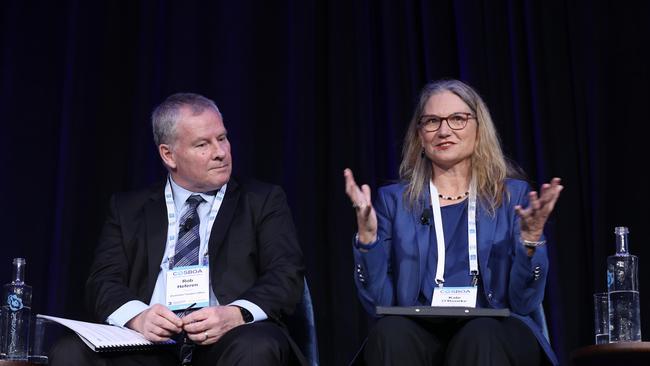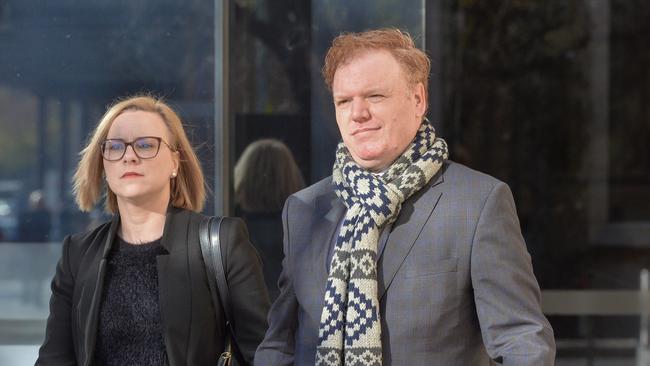
It may not create a national swing, but the promise of a fair tax collection system may decide the outcome of seats where there are large clusters of family businesses.
After the 2018 Richard Boyle whistleblower revelations, which I described on Monday, we saw improvement in some areas of family business collection in the Australian Taxation Office.
But now that Richard Boyle has been “broken”, no whistleblower will again tell the truth about what’s happening in the ATO and the tax consultants are making so much money from taxpayers that they will not say a word. Not surprisingly, in the post-Boyle era, the ATO is returning to its old ways.
The imposed silence that now covers ATO bad practices can only be fixed by politicians and journalists.
The good news is that public servants can sometimes be exposed, and seeping up from under the post-Boyle concealment covers are old-style ATO horrors.

And we should not forget that it was the bad collection systems of the ATO that were the real reasons for the Robodebt disaster. The bad systems also played an important role in the decision to tax unrealised gains in superannuation.
The public service silencing of whistleblowers like Richard Boyle has been a national disaster (and a disgrace) and it’s now up to politicians in all parties to undertake measures to make tax collection in Australia fair.
And we are lucky.
In 2021, a parliamentary committee headed by the Liberals’ Jason Falinski and the ALP’s Julie Owens set out a clear map for the government. Sadly, both the Coalition and ALP governments, under ATO pressure, pigeonholed it.
The greatest single mistake of both the Coalition and the ALP was to allow the ATO to abandon the “presumption of innocence” legal principles that underpin our democracy.
The ATO’s practice of sending out taxation assessments without details which then become an immediate liability, irrespective of their merits, has devastated many honest taxpayers, particularly family businesses.
The horror was best illustrated when the ATO used false data to deliberately destroy most of a thriving Australian high-skill industry – gold refining.
An ATO error had cost the nation many billions in lost GST revenue, which was sent by local crooks to the Middle East – possibly to Hamas and Hezbollah.
Instead of chasing those crooks, the ATO covered up its GST mistake by dumping fictitious tax assessments (as later declared by the courts) on gold refiners, whom the ATO admitted it had incorrectly blamed for the loss of the GST.

The gold case also underlined that apart from using the expensive court system (the ATO will go to the High Court), the only redress for taxpayers is to seek the help of the Inspector-General of Taxation/Taxation Ombudsman.
The insufficiently funded Ombudsman has limited power and is overwhelmed with claims.
Worse still, the Ombudsman is forbidden access to many taxpayers’ files. There is no pretence of fairness.
In October 2021, the Falinski-Owens report used the principles of fair taxation applied in the US to back many recommendations for the Australian tax system, including:
● Upgrading the Inspector General of Taxation (Ombudsman) to an office modelled on the Taxpayer Advocate developed in the US.
● The IGT/Ombudsman must have automatic and unrestricted access to all ATO files for individual taxpayers.
● Changing legislation to give taxpayers the same protections enjoyed by all other citizens when dealing with debts, by making debts not payable until they have been proved. They cannot be collected until that time.
●The onus of proof should lie not with the taxpayer but with the ATO.
● Interest and penalties cannot be applied until a tax assessment has been declared a debt.
● The ATO’s Taxpayer Charter should be reviewed with a view to creating a Taxpayer Bill of Rights modelled on the US.
There are few countries in the world where a tax office sends an assessment to a taxpayer but does not explain how they calculated the alleged tax debt.
Normally an honest ATO officer would expose such practices, but the public service has silenced them.
And Treasury and the ATO will fight any attempt to bring justice to the system, believing revenue is more important than honesty and fairness.
They will also fight to continue the current practice of attacking our top 5000 private companies without any specific reason by requiring them to undertake years of audits and almost mindless data seeking.
Let’s hope that in the coming election, at least one party will have a tax policy in the national interest that broadly follows what the ALP and Coalition agreed on back in 2021.
Finally, I will have a short break over the Christmas-January period. A special thanks to readers for their support in a number of key issues in 2024. Recently, together, we played a role in pigeonholing (abandoning?) the superannuation tax on unrealised gains (the grandmas’ and farmers’ tax) and in the decision by the government to delay some of its aged home care legislation that had been rushed through the Senate but had not been properly thought out.




